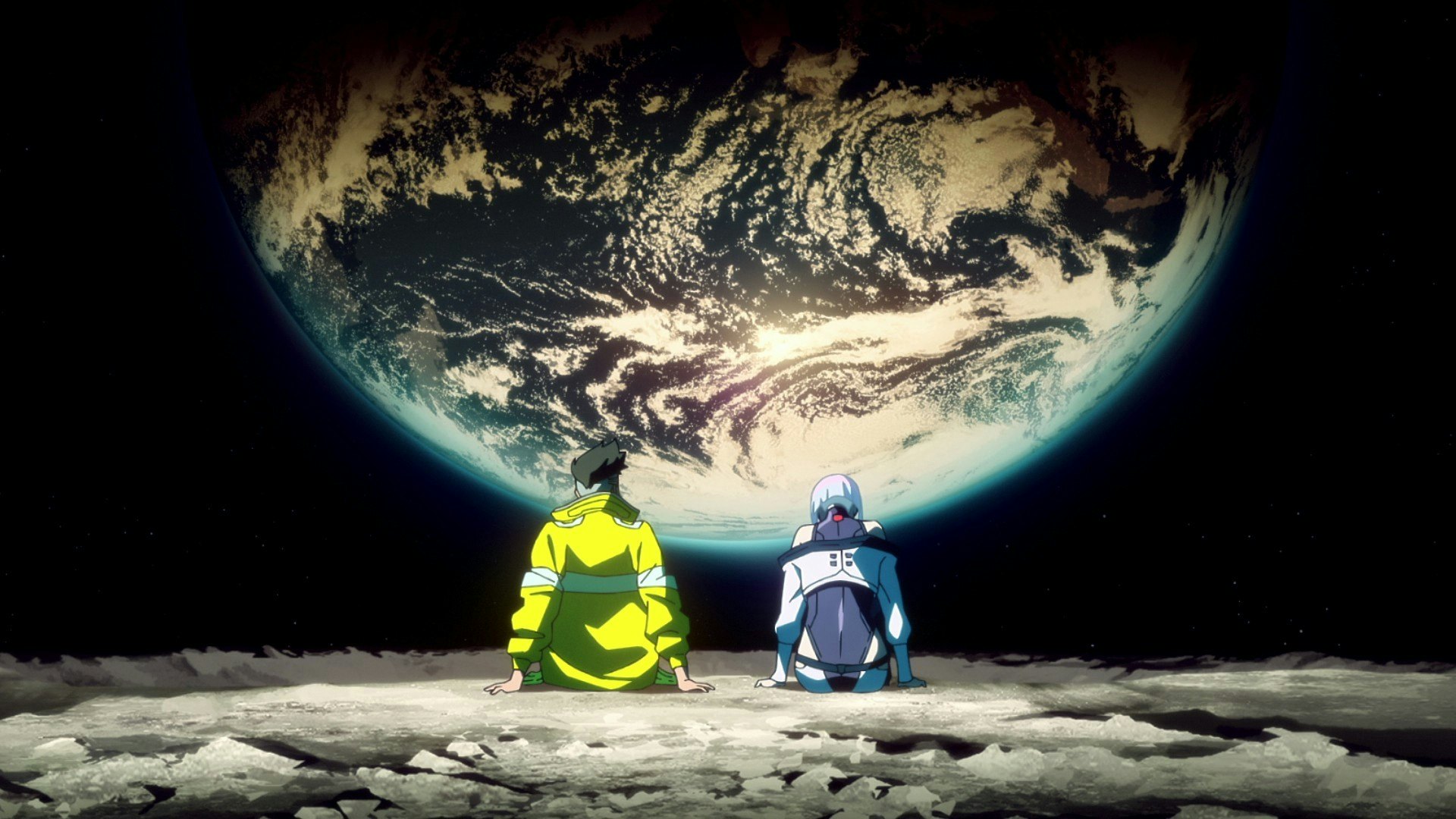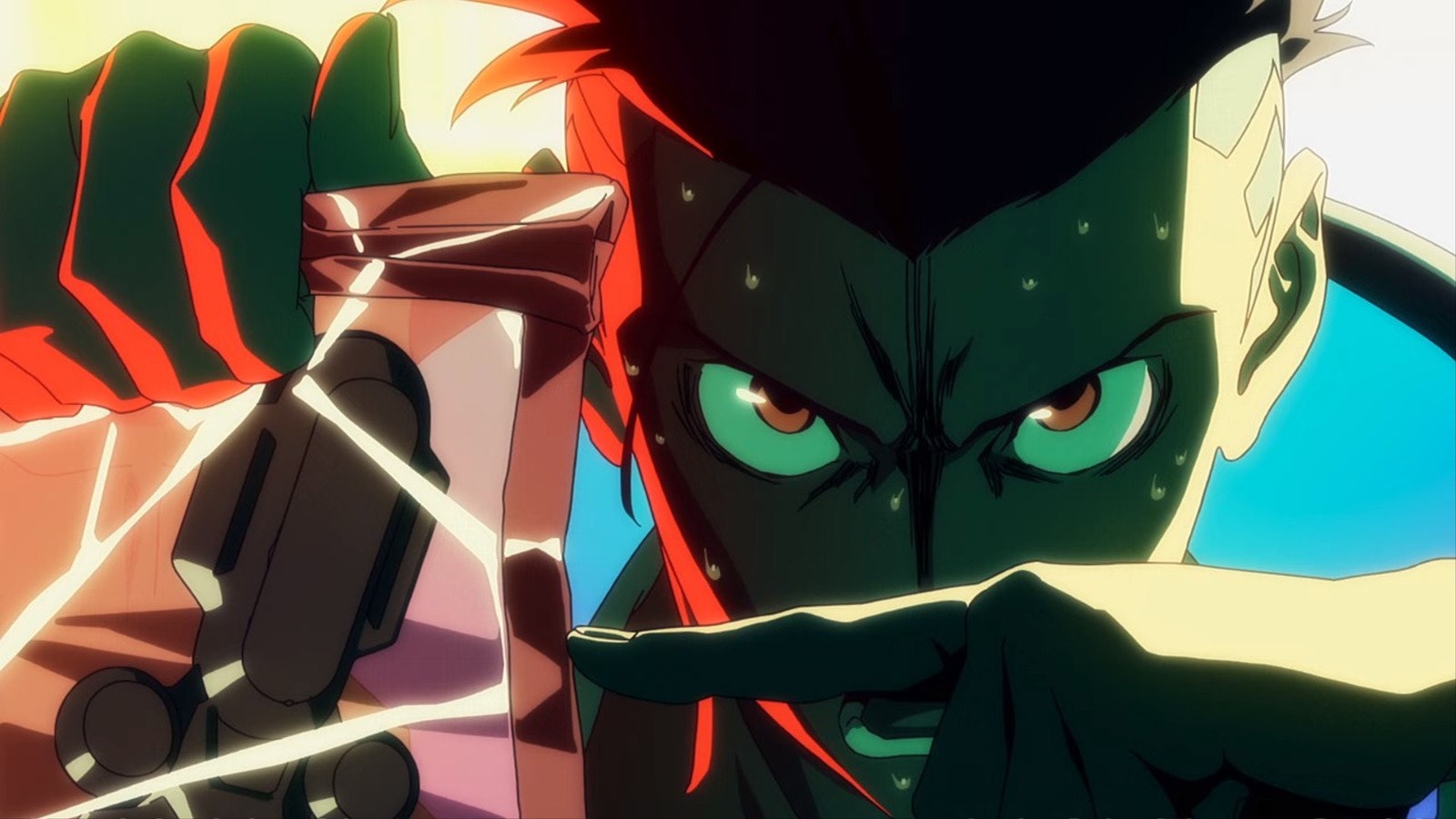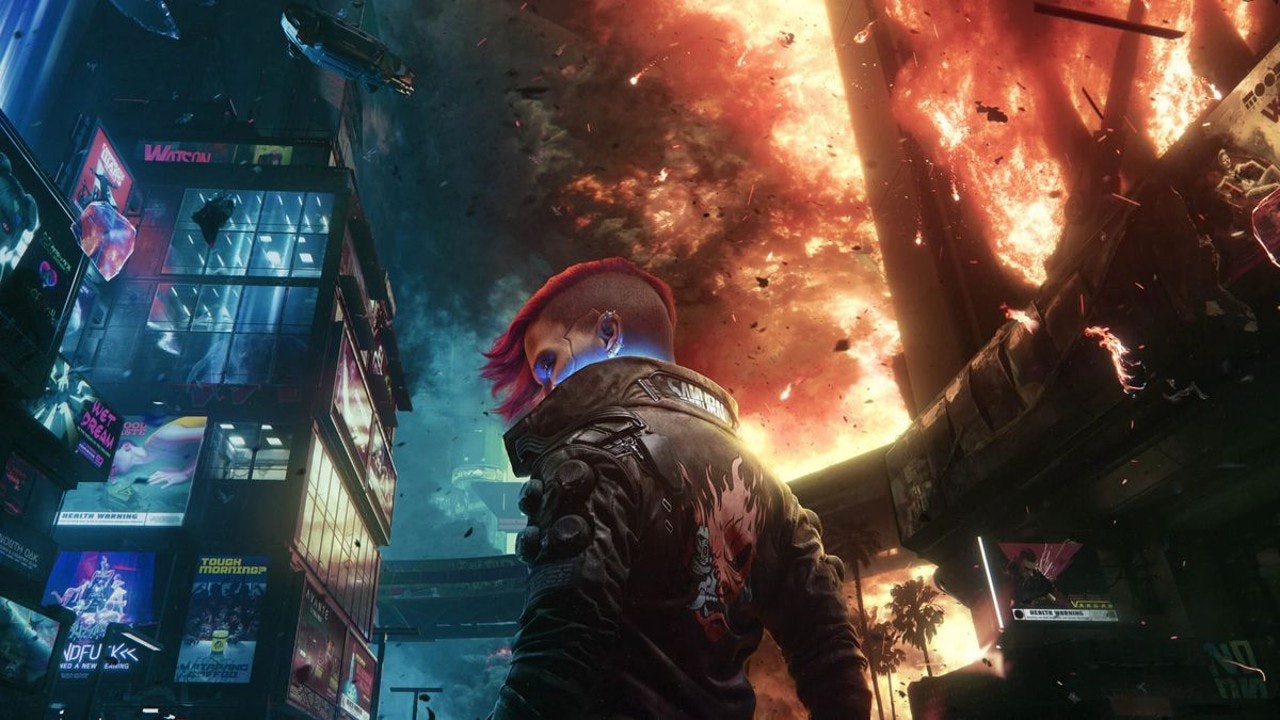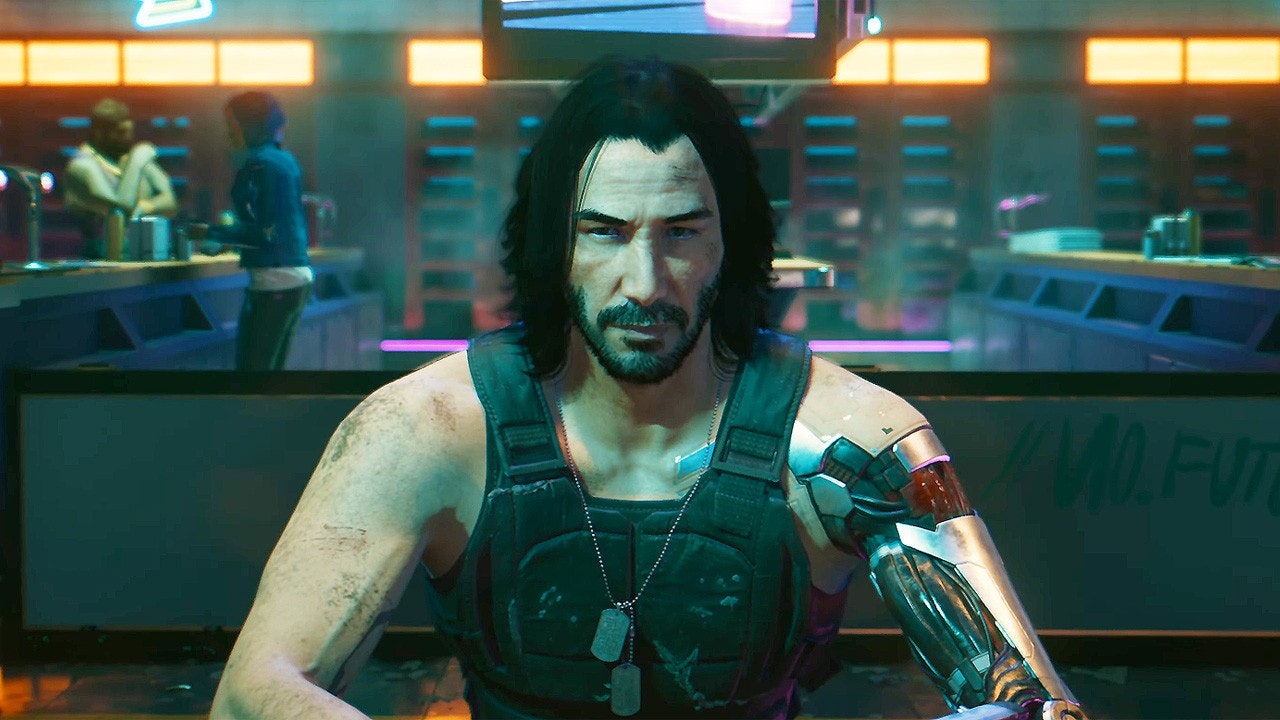
Cyberpunk 2077 has seen a massive resurgence since the release of Cyberpunk Edgerunners, a Netflix anime that has garnered widespread critical acclaim from fans and critics alike. More than just being flashy and fun, however, Edgerunners really digs into the heart of what makes the Cyberpunk genre tick, in a far more effective manner than its video game counterpart. Where Cyberpunk 2077 gets bogged down by tropes, Edgerunners soars with emotional storytelling, and the recently announced sequel, Project Orion, needs to take notes.
Edgerunners takes place just before the story of Cyberpunk 2077, and it heavily features locations, corporations, and ideas used in the game. There’s a vital difference between the narrative trappings of the two, as Cyberpunk 2077 tries to put the focus on the “big picture,” telling a story of megacorporations that rule society. It has all the tropes of the Cyberpunk genre, like corporate espionage and body modification, but that’s exactly the problem, as the game’s narrative ends up feeling like a mish-mash of tropes that don’t have anything original or interesting to say.
Edgerunner smartly overcomes this problem by putting its narrative focus squarely on the experiences of its characters, David and Lucy in particular. Edgerunners still has all the themes and tropes of Cyberpunk 2077, but the audience is experiencing those through the emotional filter of David.

In Cyberpunk 2077 we know corporations control everything, including healthcare, but there’s no emotional core to drive that theme home. With Edgerunners the very first episode shows David’s mother dying simply because she can’t afford healthcare, and David doesn’t even get to see her because they don’t have the proper plan that grants “visitation.” This is a far more effective way of displaying the insidious grip of capitalism than any of the plot lines in Cyberpunk 2077.
At the same time, this creates a deeply personal reason for David to fight back against the world he’s been thrust into. Edgerunners consistently runs with this theme, the idea of a horrifically unfair world essentially dooming certain people based on the economic situation they’re born into.
With that as the foundation, the audience gets to see David navigate the world of Cyberpunk, as he invests in body modification to change his fate, and meets a group of others that also refuse to simply “accept” their place. Then with Lucy, as we learn more about her past, we see her struggle to save David from the horrors she herself experienced.
As Edgerunners loops in more themes and tropes, it never loses sight of its character’s emotional core, and the overarching theme of the show is finding solace in kindred souls, even as the world around you wants you dead.

Cyberpunk 2077 simply doesn’t earn its emotional moments like Edgerunners, and that’s mostly down to the story feeling too convoluted and unfocused. There are too many corporations and players to keep track of, and that’s before even talking about Johnny Silverhand. While Keanu Reeves puts up an expectedly strong performance, ultimately Cyberpunk 2077 doesn’t give us enough reason to care about Johnny as a character.
Bits and pieces of his story are revealed as the narrative goes along, but we never get much of a feel for the character outside of him being a grungy leather pants-wearing anarchist. At the same time, the narrative conceit of Johnny and V’s consciousness colliding isn’t explored as much as it could be. Before long Johhny simply feels like a voice in your ear, and there’s no sense of conflicting ideals or personalities, he just feels like another NPC.
A better decision might have been to make the player take on the role of Johnny themselves, using a kind of meta-narrative that forces the player to override the personality of an NPC and call into question the ethics of that.

Ultimately, Cyberpunk 2077 suffers from too much exposition that doesn’t provide an emotional reason for the players to care about what’s happening to the characters on-screen. Ironically, what Edgerunners gets right is exactly what worked so well about The Witcher 3’s narrative as well. In The Witcher 3, the story always ties back to Geralt’s search for Ciri, and the emotional bond between them. Along the way, there might be Empires, wars, and interdimensional beings, but ultimately the story is nothing more than a father searching for his lost daughter. The Witcher 3 never forgets that fact, and that’s why it works.
Cyberpunk 2077 may be in the middle of a renaissance, but moving forward CD Projekt is going to have to seriously consider how it can change and refine its approach. The overwhelming success of Edgerunners should be a strong indication that these more focused character stories are a great way of exploring the genre, rather than trying to tell a massive epic tale with so many moving parts. If anything, Project Orion needs to go back to basics and keep it simple.







